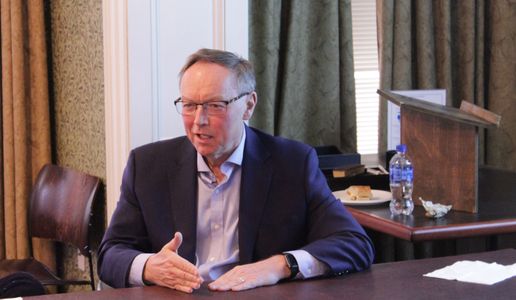Lukes in WaPo on the 50th Anniversary of the Prague Spring
Igor Lukes, Professor of International Relations and History at the Frederick S. Pardee School of Global Studies at Boston University, was interviewed for a recent article on the 50th anniversary of the Prague Spring.
Lukes was quoted in an August 22, 2018 article in The Washington Post entitled “‘It Was Lethal’: How The Prague Spring Was Crushed By a Soviet-Led Invasion.“
Igor Lukes was 17 and was headed to university, rather than Red Army military service. He celebrated with a trip to England.
He had a double-breasted, pinstripe suit tailored for the trip at a haberdashery in his Letna neighborhood, where the giant statue of Stalin had once stood. “Because that’s how I believed everyone in England dressed,” Lukes explains 50 years later. “I missed the memo about the Beatles and all that.”
Lukes, the son of a law professor and a beloved children’s author, was thrilled by England, especially the friendliness of the British.
“I was really impressed with the way they treated me, the way they treated each other,” Lukes, now a professor at Boston University, said. In Czechoslovakia, “we were much more impatient, people never smiled, you came to a store, people barked, ‘What do you want?’ ” he said.
On Aug. 20, Lukes returned to Czechoslovakia from England. He’d bought a bottle of whiskey at the duty-free shop and shared it with his parents as he tried to tell them everything. By midnight, they were all tired and fell asleep.
“But at 1:30 or 2 a.m., a friend of mine called. He said ‘Open the window,’ ” Lukes said.
“One could hear the roar of the transport planes that were bringing tanks. Russians had the largest transport planes in the world. One could also see tracers against the dark sky. On the one hand, it was enormously frightening. It was lethal,” he said. “But they were also, I don’t know, aesthetically pleasing. So I was in awe.”
“I met this friend of mine, we walked through the city,” he said. “We saw dead people, here or there, covered in newspapers,” he said.
The Warsaw Pact armies had invaded at night, and about 500,000 troops rolled across the country all day. Most of the soldiers didn’t even know what country they were in. Lukes said some believed they were in Germany to fight Nazis.
Lukes said there was a weird euphoria across the country after the invasion. The Czechs believed the West would come to their aid against the invaders. Surely they wouldn’t stand for this.
A year later, when there were protests on the anniversary and the men in uniform attacking citizens were Czechoslovakian police, that was when Lukes said he knew he had to leave.
“By 1969, the enemy was not the ‘other,’ ” he said. “The enemy was the Czech police. Our own people. It was the first time I had seen the police use physical force.”
Igor Lukes writes primarily about Central Europe. His publications deal with the interwar period, the Cold War, and contemporary developments in East Central Europe and Russia. His work has won the support of various other institutions, including Fulbright, Fulbright-Hays, the Woodrow Wilson Center, IREX, and the National Endowment for the Humanities. In 1997 Lukes won the Metcalf Award for Excellence in Teaching at Boston University.
